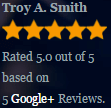The justice system isn’t perfect, and wrongful imprisonment can be a by-product of its imperfections. Mistakes can happen anywhere along the long and arduous process, so it is one that is hard to correct. Whether the problem occurs in the initial stages, with arrest, or in the later stages with sentencing and juries; the mistake is equally disappointing.
Wrongful Imprisonment: What Happens?
If you can prove that you are innocent, you can try to go back to court. Another trial will give you the chance to show that evidence and take your chances with another jury, maybe even another prosecutor. But, remember that this doesn’t guarantee that anything will change. There is a chance that the outcome will be the same. However, it is a chance you might want to take. If nothing changes, then it would be the same as not going to court. But, if you get a better verdict, it could be life changing! The possibilities are endless.
Wrongful Imprisonment: Exoneration Statistics
Currently, two thousand and ninety-seven people have been exonerated of crimes they were imprisoned for. At one hundred and sixty-eight, 2016 has the honor of the year with the most exonerations. The average amount of time lost is a little over eight and a half years. If you would like to read more about exonerations and contributing factors, you can start here. Wrongful imprisonment can hang on a single piece of evidence or a mountain of it. Showing that a person is innocent can be a challenge. In some cases, DNA can set a person free. In others, it may be the testimony of someone who was mistaken. And in a few, there may be errors in autopsy reports. The entire case must be reviewed, with scrutiny.
Wrongful Imprisonment: How does it happen?
There are different ways along the process that lead to wrongful imprisonment. There are so many that it is relative to each case. In some cases, there is a wrongful arrest. If they fit a description and there isn’t a lot of evidence that proves they are innocent, it can be hard to keep them out of jail. The justice system that once assumed you were guilty now requires you to prove you’re innocent. Sometimes, the evidence can be misleading. Everyone loves to talk about DNA, but there is little attention paid to cross-contamination and how ambiguous trace evidence can be. And then there is the jury. People tend to forget that they have to be sure of guilt, that any possibility of innocence is one that will mean freedom for the defendant.
Wrongful Imprisonment: Resources
If you are wrongfully convicted, you have options. You can request new counsel. Perhaps you weren’t satisfied with your attorney and how they treated the case. There have been people who felt their lawyers weren’t listening to them about ways to corroborate their stories or potential evidence and witnesses in their defense. If you think someone else might represent you better, you can ask for a different defender. There are also plenty of groups who advocate for the innocent. The Innocent Project is probably the most popular, but the Center on Wrongful Convictions is also a good resource. They can give you advice about your case and resources you should utilize.
Wrongful Imprisonment: Innocence
Once you are found innocent, you will be released. The amount of time depends on the court and paperwork process. However, it tends to be the same day. After that, you will need to find a place to stay and a way to get there. When they release you, there isn’t any accommodation to integrate you back into the outside world. If given parole, you will want to talk to your probation officer about these details. However, if you are not guilty, you are free as a bird! It is best if you find a counselor and resources to help you get back into the groove of things. Going back into normal life can be challenging, regardless of how long you’ve been away. You can try the Innocence Network or After Innocence, to see what they can do for you.
In wrongful imprisonment cases, you need someone who will represent you and show the court every detail that proves your innocence. It makes all the difference; your attorney is your voice to the court. You can start here. If you have already been found innocent, you may want to speak to a lawyer about options for a case against the court. Even if you aren’t concerned about money, it will help with counseling costs and get acclimated to a new daily life. It is something to at least consider; it’s just a phone call and a conversation that might help you feel better.












